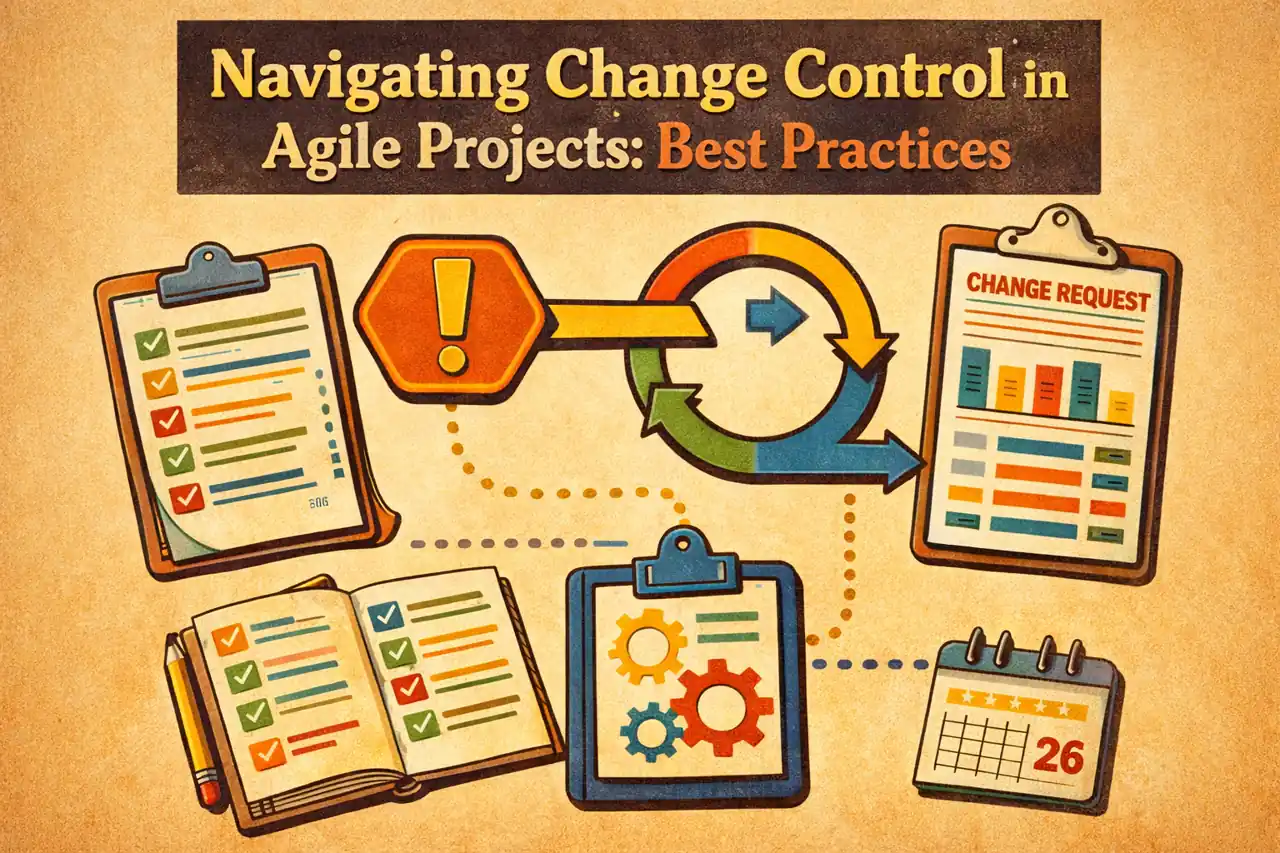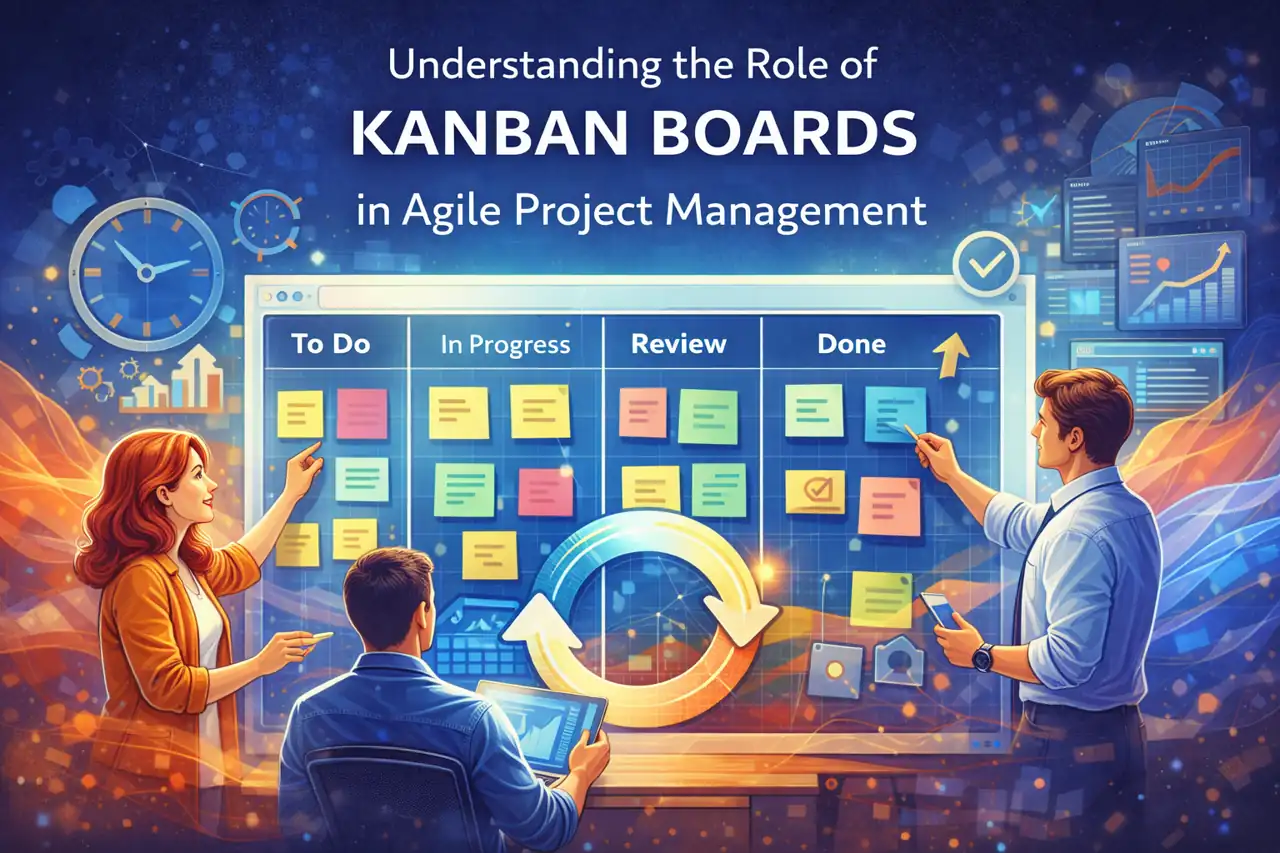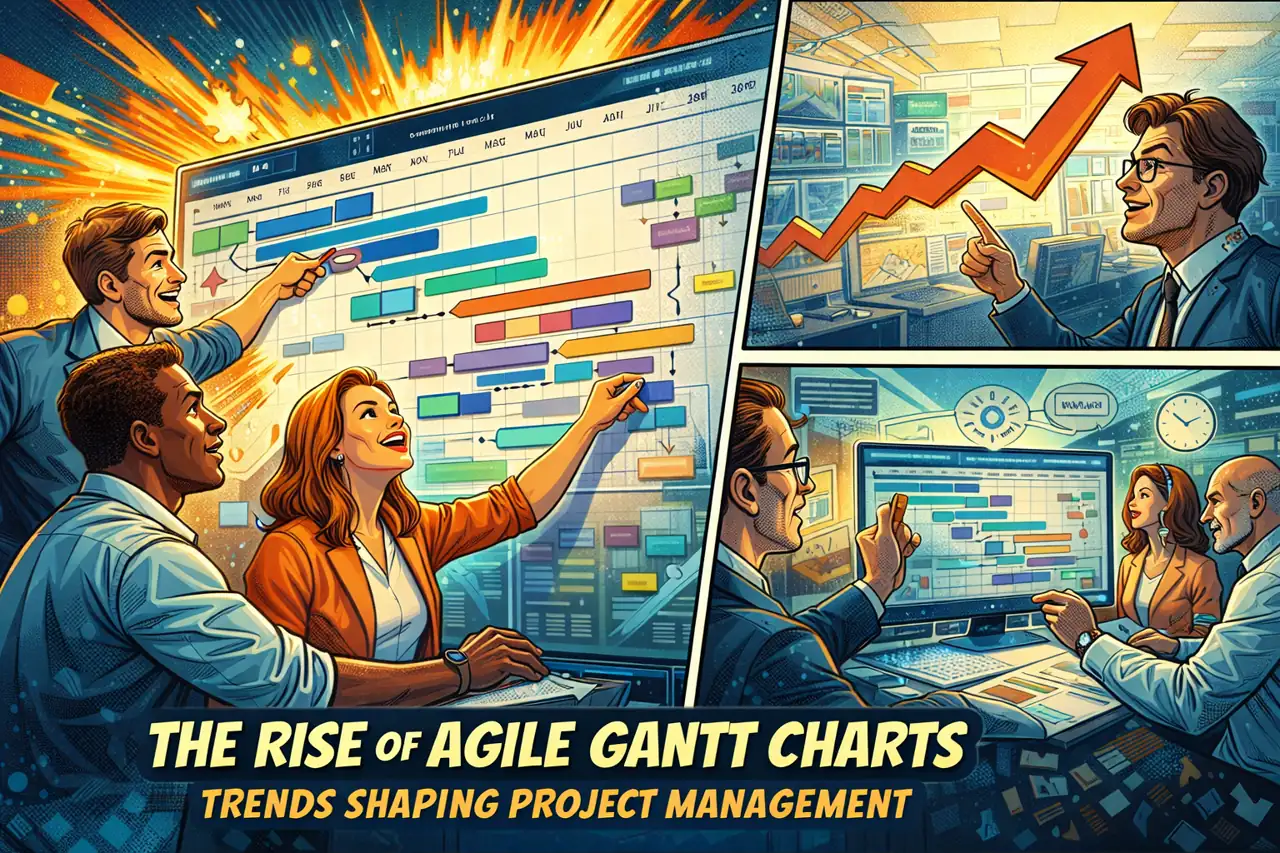Agile project management is a dynamic approach to project planning and execution. Discover how to streamline project workflows, boost team collaboration, and deliver high-quality results faster with our expert guide. Learn about Agile methodologies, tools, and best practices to drive project success. Start your Agile journey today.

Navigating Change Control in Agile Projects: Best Practices
Introduction to Change Control in Agile Particularly within Agile methodologies, the concept of change control plays a pivotal role in ensuring project success. This section aims to provide an overview…

The Future of Product Flow Diagrams in Agile Project Management
Introduction to Product Flow Diagrams Particularly within agile methodologies, product flow diagrams serve as essential tools for visualizing and managing the flow of products through various stages of development. This…

Understanding the Role of Kanban Boards in Agile Project Management
Introduction to Kanban Boards Kanban boards serve as a pivotal tool that enhances workflow efficiency and team collaboration. Understanding the role of Kanban boards is essential for Agile teams and…

The Rise of Agile Gantt Charts: Trends Shaping Project Management
Introduction to Agile Gantt Charts Agile Gantt Charts have emerged as a significant tool that bridges the gap between traditional project management techniques and modern agile methodologies. As organizations increasingly…

The Professional Implications of Agile Gantt Charts in Project Management
Introduction to Agile Gantt Charts The tools and methodologies employed can significantly influence both the success of projects and the professional growth of project managers. One such tool that has…

The Role of Governance in Agile Project Management: A Balancing Act
Introduction to Governance in Agile Project Management Governance plays a crucial role in ensuring that projects are executed effectively, efficiently, and in alignment with organizational objectives. Governance in project management…

Visualizing Success: The Psychological Benefits of Agile Gantt Charts
Introduction to Agile Gantt Charts The Agile Gantt Chart emerges as a powerful tool that combines the structured timeline of traditional Gantt charts with the flexibility and iterative nature of…

The Evolution of Agile Planning: Trends Shaping Project Management
Introduction to Agile Planning Agile planning is a dynamic approach to project management that emphasizes flexibility, collaboration, and customer-centricity. It is rooted in the Agile methodology, which prioritizes iterative progress…

The Agile Planning Lifecycle: Key Phases and Deliverables
Introduction to Agile Planning Agile planning is a dynamic approach to project management that emphasizes flexibility, collaboration, and customer-centricity. Unlike traditional project management methodologies that often rely on rigid structures…

Scaling Agile Planning: Techniques for Larger Projects
Introduction to Agile Planning Agile planning is a dynamic approach to project management that emphasizes flexibility, collaboration, and customer-centricity. It is rooted in the Agile Manifesto, which prioritizes individuals and…









